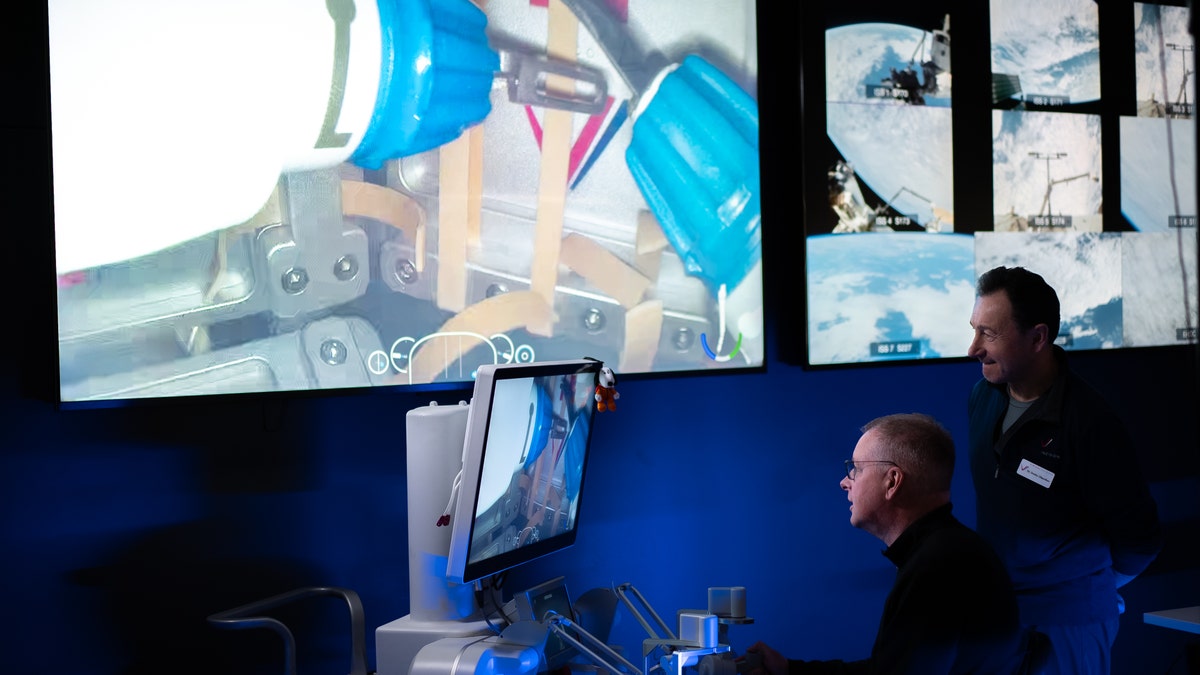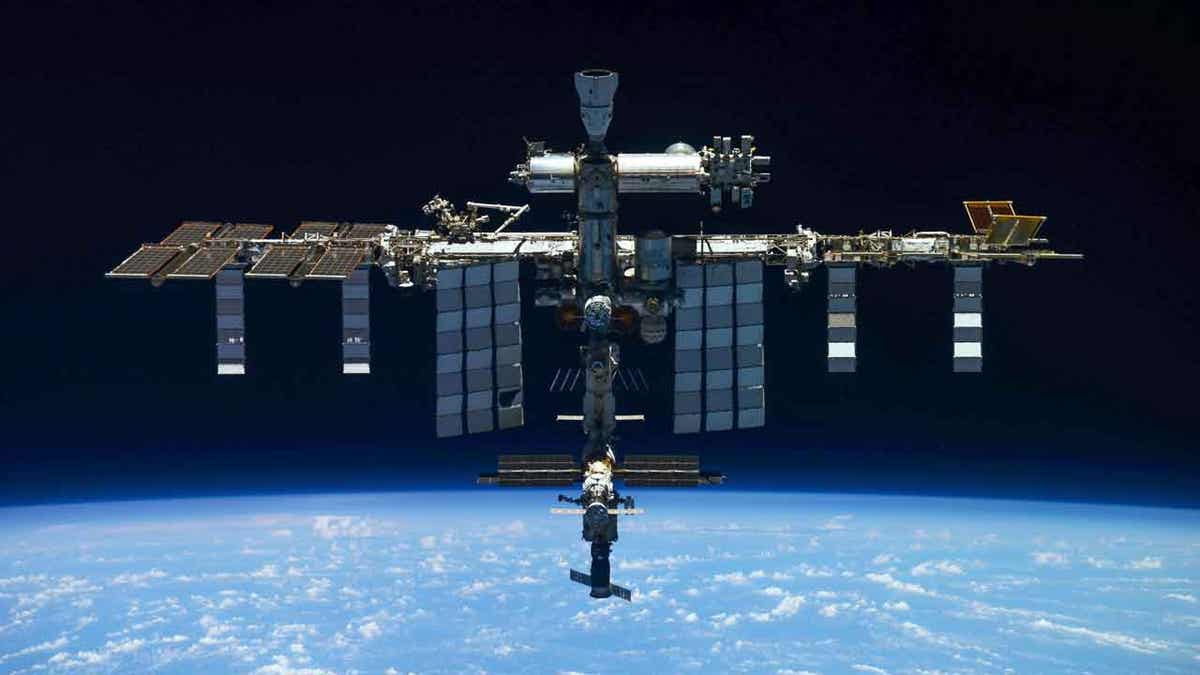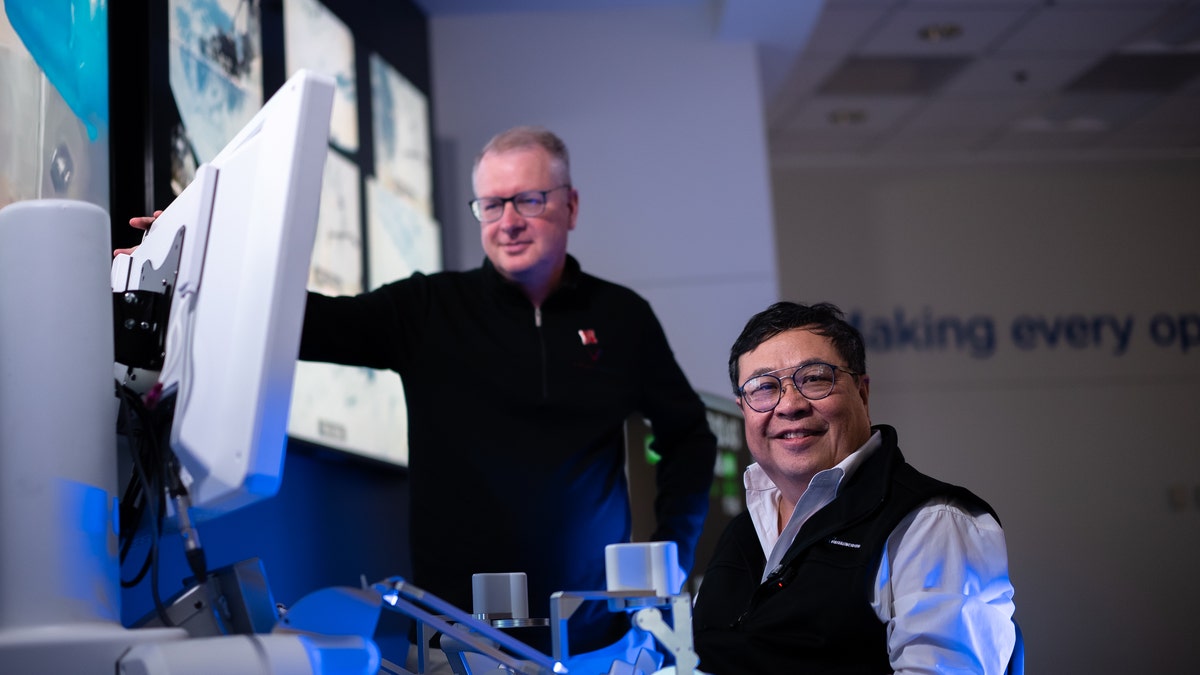How a lizard-like robot could help the Navy 'prevent catastrophes': decorated veteran
Doug Philippone, a venture capitalist, touted three devices that companies in his portfolio have developed. He says they could provide significant benefits to the military.
A tiny remote-controlled robot will attempt a surgical procedure on the International Space Station (ISS) that could provide a major leap forward for remote medical services and hope for even the most remote rural communities.
"When we started this work at the University of Nebraska, we shared a collective vision that miniRAS could make robotic-assisted surgery available to any patient, anytime, anywhere," Shane Farritor, co-founder of Virtual Incision, told NPR of the experiment.
"Exploring the use of miniRAS in extreme environments helps our teams understand how we can remove barriers for patients."
The robot, nicknamed MIRA, for miniaturized in vivo robotic assistant, weighs just two pounds and will simulate the motions of a surgeon, who will direct the robot via remote control from over 250 miles away in Nebraska.
HERE'S HOW AI WILL DRIVE HEALTH CARE TO MEET CONSUMER EXPECTATIONS

The miniaturized surgery robot MIRA (Miniaturized In Vivo Robotic Assistant) on display at a demonstration. (Virtual Incision Corporation)
Virtual Incision Corporation, the Nebraska-based company responsible for developing the miniaturized robotic-assisted surgery (miniRAS) system that will enable the procedure, claimed the robot will grasp objects with one hand while cutting with the other.
The company has stressed that it aims to see technology advance to the point it can help connect doctors with remote regions of Earth to provide access to quality surgical procedures.

MIRA operators demonstrate the robotic assistant's ability to perform surgical tasks with a remote control. (Virtual Incision Corporation)
Researchers have explored medical procedures in space for years, making minute but meaningful progress over the past decade. A paper published in 2012, "Surgery in Space: Where are we at now?" raised concerns about the effects of microgravity on human physiology, which could complicate Earth-based medical procedures.
COULD A SECURITY GUARD SHORTAGE BE SOLVED WITH THIS AUTONOMOUS SECURITY ROBOT?
The process of suturing, for instance, could occur with a similar "but slower" procedure than in normal gravity and required the operator to acclimate to the microgravity environment.

In this handout photo released by Roscosmos State Space Corporation is an image of the International Space Station taken March 30, 2022, by the crew of the Russian Soyuz MS-19 spaceship after undocking from the station. (Roscosmos State Space Corporation via AP, File)
"A unique system for delivery of medical care in space must be capable of handling medical events given the extreme operational medical setting," the authors wrote. They cited successful execution of a range of procedures already completed in simulated microgravity environments, including leg dissection, craniotomy, laparoscopy and ureteral stenting.
A paper published a decade later, "Robot-assisted surgery in space: pros and cons," added new and more difficult issues to the conversation, such as communication issues, suggesting that the only way to make remote procedures possible was to use telemedicine and simply have "telemonitoring."
BUBONIC PLAGUE IN THE US: DO YOU NEED TO WORRY ABOUT CATCHING THE RODENT-BORNE DISEASE?
However, it did highlight new benefits discovered in the intervening years that resulted from using robotic surgeons in localized environments — the distribution of tasks, helping "transfer" tasks to the robots and helping "significantly reduce the cognitive load on humans' abundance of critical decisions that must be taken in a timely manner to ensure safety."

The operating team of the MIRA and miniRAS system. (Virtual Incision Corporation)
The improvement of satellite technology will help with some of the communication issues and allow the execution of increasingly complex surgeries, according to a post on the topic written by engineering infrastructure development firm Utilities One.
CLICK HERE TO GET THE FOX NEWS APP
Improving satellite technology appears key to the issue. Elon Musk focused on satellites as the method of delivering his Starlink internet service, similarly looking to connect even the most remote areas to the rest of the world through his system.
"Leveraging the power of satellites orbiting the Earth, this transformative approach to surgery is set to overcome the limitations of traditional methods by enabling remote, minimally invasive procedures on a global scale," Utilities One wrote on the topic.
